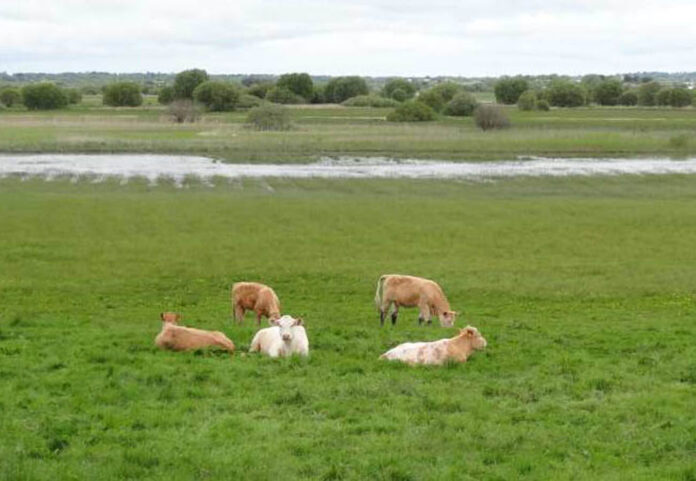A CLARE farm leader has taken issue with comments made by Minister of State at the Department of Agriculture, Pippa Hackett, over controversial proposals to address Climate Change.
In an interview with The Clare Champion, Minister Hackett said Ireland has to meet its Climate Change targets under the Paris Agreement and couldn’t control what happens in Brazil, which has to meet its own environmental obligations.
“Ireland has to do what we can. Using Carbon Leakage not to take any action is a waste of time in my book and the government’s book, I am discounting that.
“Ireland’s grasslands are a net emitter of carbon. We farm on a lot of peaty soils. When that is drained, that emits carbon. I think over the last 15 years we probably have lost more hedgerows than we have planted.”
However, her comments have been challenged by Irish Cattle and Sheep Farmers Association (ICSA) general secretary, Eddie Punch.
Minister Hackett believes there is probably a net loss in terms of what our hedges are sequestering. “We are going to facilitate farmers to plant more. There are planting options in the new REAP scheme for trees and hedges.
“There is no point in measuring it now. We will be measuring it from a baseline and that will tie in with the Climate Action baseline. If we measures it now, we would not be in a good position. If we measure it in years to come, we will be in a good position.
“Some farms are sequestering carbon. You can’t say because I have X number of cows I can offset it with these hedges. We have to lower methane emissions, end of story. If we cover the country in trees, we still have to lower our methane emissions.”
Asked how much the national herd may be cut, the minister said that hasn’t been discussed in detail in terms of any cut, and stressed the herd has to be stabilised first.
“If we stabilise we can measure. Our emissions are going up, so it is very hard to assess any emissions gains. We know we have got very efficient at producing milk and beef per kilo or unit of volume, but if the overall numbers are on the rise, that doesn’t count for much. We need a reduction in emissions and that will be a big challenge.”
Mr Punch questioned the minister’s statement on hedgerows, as he believes there isn’t evidence to support this assertion, in view of the hedges planted by farmers as part of various environmental schemes such as GLAS.
“Travelling up and down the country, I don’t see a lot of evidence of hedgerows being lost. If a farmer loses a hedgerow, he has to replace it, otherwise he will be penalised under his direct payments.”
He pointed out state agencies like Teagasc or the Department of Agriculture are unable to state how much carbon is sequestered by various types of grassland management.
Until this is properly calculated, he said it unfair to state there is no point in looking at this important factor.
He said the Intergovernmental Panel on Climate Change and EU targets have been focused on emissions only and haven’t taken into account sequestration because industry doesn’t have any ability to sequester carbon, so the government doesn’t want to talk about this issue.
“It is unbalanced to say the provision of carbon sinks by farmers can be dismissed. A €2m research fund has been awarded to a conglomerate of people in West Cork to see if they can devise a system to make a dairy farm net carbon zero.
“We need to find solutions. We are part of the EU but Germany has insisted on the Mercosur Deal because their car industry is more important than anything else. It has opposed measures to reduce coal burning. We have to be balanced and realistic. No country is going to destroy its own self-interest, except we seem to be hell bent on doing this.
“Ireland has to do its bit for the environment but can’t completely shoot itself in the foot because other countries like Germany are not going to destroy their car industry.”
He pointed out the new REAP environment scheme will pay farmers about €4,000 each, which isn’t a very attractive option for all the additional work that is involved, and is much smaller than the €8,000 provided under the REPS scheme 15 years ago, excluding the huge rise in costs during this period.
by Dan Danaher


